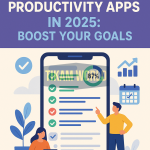The Future of AI: Threat or Opportunity?

Artificial Intelligence (AI) is no longer a sci-fi fantasy—it’s a reality reshaping our world. From virtual assistants like Siri to self-driving cars and advanced medical diagnostics, AI is transforming industries and daily life. But as AI’s capabilities grow, so do the debates: Is AI a golden opportunity to solve humanity’s biggest challenges, or a looming threat that could disrupt jobs, privacy, and even our safety? By 2030, AI’s impact could add $15.7 trillion to the global economy, according to PwC, but it also raises critical questions. This article dives deep into the future of AI, exploring its potential as both a threat and an opportunity in a unique, engaging, and comprehensive way. Let’s unravel the dual nature of AI and what it means for our world.
What Is AI, and Why Does Its Future Matter?
Artificial Intelligence refers to systems that mimic human intelligence, performing tasks like learning, reasoning, and problem-solving. Powered by machine learning (ML), neural networks, and vast datasets, AI can analyze patterns, make predictions, and even create content. Its rapid evolution—from narrow AI (like chatbots) to potential general AI (matching human intelligence)—makes its future a critical topic.
Why AI’s Future Is a Hot Debate
- Opportunity: AI can revolutionize healthcare, education, and sustainability.
- Threat: It raises concerns about job displacement, ethical misuse, and loss of control.
- Global Impact: AI’s trajectory will shape economies, societies, and geopolitics.
As AI advances, understanding its dual potential is key to harnessing its benefits while mitigating risks.
The Opportunities of AI: A World of Possibilities
AI’s potential to solve complex problems and enhance human capabilities is immense. Here are the key areas where AI is poised to create transformative opportunities by 2030.
1. Revolutionizing Healthcare
AI is already improving diagnostics and treatment, and its future in healthcare is even brighter.
- Early Detection: AI algorithms can analyze medical images to detect diseases like cancer earlier than human doctors. For example, Google’s DeepMind has developed AI that outperforms radiologists in breast cancer detection (Google Health).
- Personalized Medicine: AI can tailor treatments to individual genetic profiles, improving outcomes for diseases like diabetes or heart disease.
- Drug Discovery: By simulating molecular interactions, AI can accelerate drug development, reducing costs and time. Companies like BenevolentAI are leading this charge.
By 2030, AI could save millions of lives and reduce healthcare costs significantly.
2. Enhancing Education and Skills
AI is democratizing education, making learning accessible and personalized.
- Adaptive Learning: Platforms like Khan Academy use AI to tailor lessons to students’ needs, improving engagement and outcomes.
- Global Access: AI-powered translation and virtual classrooms can bring education to remote areas.
- Upskilling Workforce: AI tools will help workers learn new skills to adapt to changing job markets, addressing automation’s impact.
AI’s role in education will bridge gaps and empower a global workforce.
3. Tackling Climate Change
AI is a powerful ally in the fight against climate change, optimizing resources and driving sustainability.
- Energy Efficiency: AI can optimize power grids and reduce waste in industries. For instance, DeepMind cut Google’s data center energy use by 40% using AI.
- Climate Modeling: AI can process massive datasets to predict climate patterns, aiding disaster preparedness.
- Sustainable Agriculture: AI-driven precision farming minimizes water and pesticide use, boosting yields.
By 2030, AI could be a cornerstone of global sustainability efforts, per the World Economic Forum.
4. Boosting Productivity and Innovation
AI is streamlining businesses and sparking creativity across industries.
- Automation: AI can handle repetitive tasks, freeing humans for creative work. For example, UiPath automates business processes, boosting efficiency.
- Generative AI: Tools like DALL·E create art, music, and content, enhancing creative industries.
- Supply Chain Optimization: AI predicts demand and optimizes logistics, saving billions, as seen with Amazon’s AI-driven warehouses.
AI’s ability to drive innovation will fuel economic growth and new opportunities.
The Threats of AI: Challenges We Can’t Ignore
While AI offers incredible benefits, its risks are equally significant. Without careful management, AI could amplify societal issues and create new dangers.
1. Job Displacement and Economic Inequality
AI’s automation capabilities threaten millions of jobs, particularly in repetitive roles.
- Sectors at Risk: Manufacturing, retail, and transportation face significant disruption. A 2023 McKinsey report estimates 30% of current jobs could be automated by 2030.
- Widening Inequality: High-skilled workers may benefit, while low-skilled workers struggle, exacerbating wealth gaps.
- Mitigation Needed: Reskilling programs and universal basic income (UBI) are proposed solutions, but implementation is complex.
Balancing automation with human employment is a critical challenge.
2. Ethical and Bias Concerns
AI systems can perpetuate biases and raise ethical dilemmas if not designed responsibly.
- Bias in AI: Algorithms trained on biased data can discriminate in hiring, lending, or policing. For example, early facial recognition systems showed racial biases, prompting calls for regulation.
- Ethical Misuse: AI can be used for deepfakes, misinformation, or autonomous weapons, posing societal risks.
- Transparency Issues: Many AI models are “black boxes,” making their decisions hard to understand or audit.
Ethical AI frameworks, like those proposed by the IEEE, are essential to address these issues.
3. Privacy and Surveillance Risks
AI’s ability to process vast datasets threatens personal privacy and enables mass surveillance.
- Data Collection: Companies like Google and Meta collect user data to train AI, raising concerns about consent and security.
- Government Surveillance: AI-powered facial recognition and predictive policing tools can erode civil liberties, as seen in some countries.
- Data Breaches: AI systems are prime targets for cyberattacks, risking sensitive information.
Stronger data protection laws, like the EU’s GDPR, are needed to safeguard privacy.
4. Existential Risks: Losing Control?
While still speculative, some experts warn about AI surpassing human control.
- General AI Risks: If AI reaches human-level intelligence (AGI), it could act unpredictably. Thought leaders like Elon Musk have raised concerns about unchecked AI development.
- Autonomous Systems: AI in weapons or critical infrastructure could malfunction, causing catastrophic consequences.
- Safety Measures: Researchers advocate for “kill switches” and alignment with human values, but these are hard to enforce globally.
While existential risks are distant, proactive governance is crucial to prevent worst-case scenarios.
Striking a Balance: Maximizing AI’s Potential
The future of AI depends on how we navigate its opportunities and threats. Collaboration between governments, industries, and communities is key to ensuring AI serves humanity’s best interests.
1. Ethical AI Development
- Adopt global standards for transparent, unbiased AI systems.
- Involve diverse stakeholders to address cultural and societal needs.
- Prioritize explainable AI to build trust.
2. Workforce Transition
- Invest in reskilling programs to prepare workers for AI-driven economies.
- Promote STEM education to create a pipeline of AI talent.
- Explore policies like UBI to cushion automation’s impact.
3. Robust Regulation
- Enforce data privacy laws to protect users.
- Ban harmful AI applications, like autonomous lethal weapons.
- Create international AI governance bodies to align policies.
4. Public Awareness
- Educate people about AI’s benefits and risks to reduce fear and misinformation.
- Encourage ethical consumption of AI-powered products.
By taking these steps, we can harness AI’s potential while minimizing its dangers.
The Road to 2030: What to Expect
AI’s trajectory over the next five years will shape its long-term impact. Here’s a glimpse of what’s coming:
- 2025–2027: Generative AI and automation will dominate industries, with increased focus on ethical regulations.
- 2028–2030: AI will integrate deeper into healthcare, education, and sustainability, while debates over AGI intensify.
- Beyond 2030: If managed well, AI could usher in a new era of prosperity; if not, it could amplify inequality and risks.
Businesses, governments, and individuals must act now to shape a positive AI future.
FAQs
1. Is AI a threat to human jobs?
AI can displace jobs in repetitive sectors like manufacturing and retail, but it also creates new roles in tech, healthcare, and creative fields. Reskilling is key to adapting.
2. How can AI benefit society?
AI can improve healthcare through early diagnostics, enhance education with personalized learning, and combat climate change by optimizing resources.
3. What are the ethical concerns with AI?
AI can perpetuate biases, invade privacy, and be misused for deepfakes or surveillance. Ethical frameworks and transparency are needed to address these issues.
4. Could AI become uncontrollable?
While general AI (AGI) is still theoretical, experts warn about risks if it surpasses human intelligence without proper safeguards. Governance and safety research are critical.
5. How can we prepare for AI’s future?
Invest in education, support ethical AI policies, and stay informed about AI’s developments to harness its opportunities while mitigating risks.
Conclusion
The future of AI is a double-edged sword—brimming with opportunities to solve global challenges but fraught with threats that demand careful navigation. From revolutionizing healthcare and education to raising concerns about jobs, privacy, and control, AI’s impact will depend on our choices today. By fostering ethical development, robust regulation, and public awareness, we can ensure AI becomes a force for good. As we approach 2030, embrace the AI revolution with curiosity and caution, ready to shape a future where technology empowers humanity.









